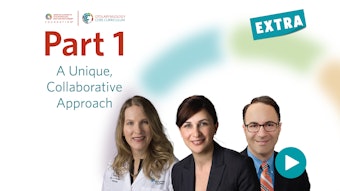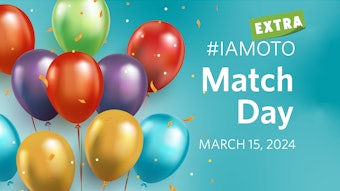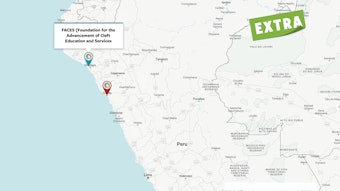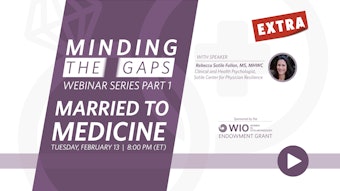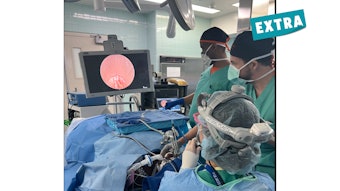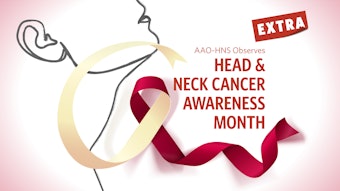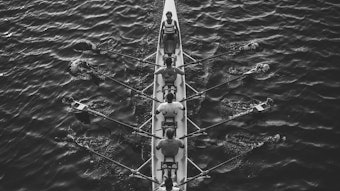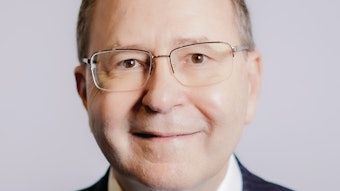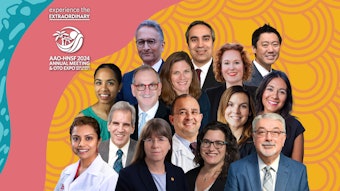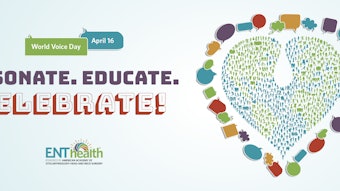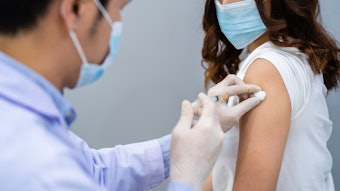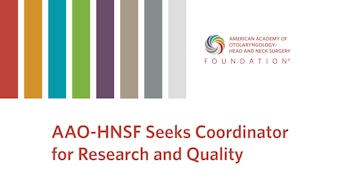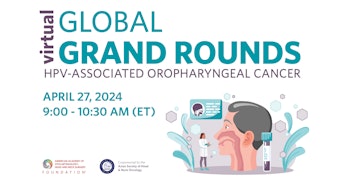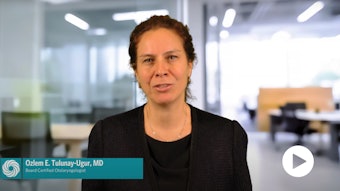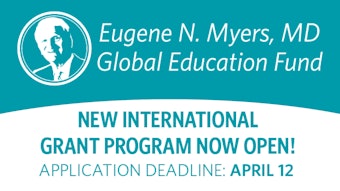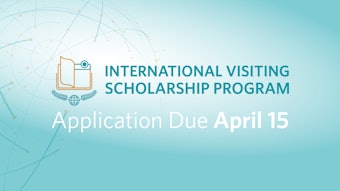Experiences of the 2023 URM Away Rotation Grant Recipients
Three awardees share their invaluable experiences and the lessons they learned during away rotations in Washington, DC, Chicago, and Colorado.
 Keisha Arielle Best, Wayne State University
Keisha Arielle Best, Wayne State University
Through the generosity of the AAO-HNSF Diversity Endowment URM Away Rotation Grant, I was afforded an amazing opportunity to rotate at Medstar Georgetown University Hospital. My time as a visiting acting intern was spent rotating on the otolaryngology service at Georgetown University Hospital, Washington Hospital Center, and the Veteran Affairs (VA) hospital.
Otolaryngology is a diverse field, encompassing everything from endoscopic rhinology cases to open total laryngectomies, and including facial plastics, laryngology, and otology in between. My time at Georgetown provided a glimpse into this diversity, which I will continue to explore in my future training and career. This wide scope, which initially attracted me to the field, perfectly aligns with my interests. It includes aspects of plastics, neurological and orthopedic surgery, allergy, endocrine disorders, and sleep medicine. During my rotation at Georgetown, I had the opportunity to delve into all these areas, working alongside a diverse group of skilled generalists and subspecialists in the otolaryngology department.
I spent my first and third weeks at Georgetown University Hospital, first engaged in head and neck and otology, and in my third week getting exposure to facial plastics, sinus, and pediatrics. My second week at Washington Hospital Center was more general with bread-and-butter otolaryngology cases. My final week at the VA hospital proved to have a few more niche experiences with my first exposure to a hypoglossal nerve stimulation implant and a modified Wendler glottoplasty, which expanded my imagination in terms of what I thought to be possible within the realm of gender-affirming care, and has further fueled my excitement for otolaryngology and my future within it. For the majority of cases, I was able to learn a new surgical skill through observation and at times doing, and in all surgical cases I learned something new whether it was anatomical variations, surgical indications, different surgical approaches, or pre- and post-operative care. On every case, I was given the chance to scrub in or assist in some way.
Beyond the operating room, some of my most rewarding experiences were in the clinic where I was entrusted with my own patients. I honed my skills in conducting head and neck exams, formulating assessments and plans, and compiling patient notes. A cherished memory was a clinic day when the PGY-1 took the time to teach me and a few third-year medical students how to perform a flexible laryngoscope exam, a task I had previously found challenging. His step-by-step guidance and advice on technique were invaluable, and he even allowed us to practice our first exam on him.
Having the opportunity to complete away rotations this cycle was something I was worried would not be possible given the high costs associated with applying, travel to a new city and state, and living expenses for an entire month. This award gave me the chance to grow my skills in otolaryngology, learn about different hospital systems and patient populations, and experience different surgical techniques as well as teaching styles. Through this travel grant, I was able to explore my interests, learn how programs may differ from one another while still offering the foundational skills to become an excellent otolaryngologist, and gain perspective on what is important to look for in a residency program.
This program has widened my prospects for residency and my future career. It has given me the gift of exposure and broadened my horizons. I look forward to paying this forward by contributing to, not only this award, but through the Academy’s many programs and outreach efforts in the future.
 Kassandra Karla Corona
Kassandra Karla Corona
I had the amazing opportunity of heading out to the great city of Chicago, Illinois, to rotate at Loyola Medical Center. Upon arriving, the program coordinator, Lauren Nagle, greeted me kindly. Since then, I have seen how high-level the whole program is. I rotated through otology, pediatric otolaryngology, plastics and reconstructive surgery, laryngology, and head and neck surgery. Loyola had fantastic surgeries I had not had the opportunity to observe before.
I saw a conjoint case of a total auriculectomy with facial reanimation due to a parotid malignant tumor affecting the facial nerve and its structures with surgeons Dr. Kircher and Dr. Pittman. While rotating in laryngology, I saw Dr. Charous perform a thyroplasty beautifully. The patient had a stroke in the past, but Dr. Charous was able to help give him his voice back. I was moved when I heard the drastic change in his voice during the operation.
Aside from the unique operative cases they performed, it was evident that Loyola does a great job of training when an emergency occurs. For example, during an emergency complex airway case, a PGY-3 ran to perform an emergency tracheotomy. He saved his life, and the patient was completely normal after restoring his airway. Additionally, there were two carotid blowouts in one week, and again, the faculty acted quickly to save their lives.
Overall, I enjoyed the surgical aspect of the rotation, but the cherry on top was seeing how close the faculty and the residents are here; they are like a family. They genuinely care about the residents' training and growth.
In addition to learning a lot at Loyola, I also explored the city on the weekends. I experienced its beautiful summer, from bike rides along the lakefront and walks along Millennium Park to trying out restaurants at West Loop, eating deep-dish pizza, and attending a Cubs game! I want to thank Dr. Thorpe, the chair, and Dr. Patel, the program director, for inviting me to his program. Lastly, I'd like to thank everyone in the program for taking part in teaching me and for the great company.
 Brandon Jose Vilarello
Brandon Jose Vilarello
From my first experiences in clinical ENT, I knew that this was the specialty for me: the variety of pathology, the hands-on nature of the outpatient clinic, and the delicate and complex anatomy of the head and neck. However, the downside of applying into such an attractive field is the extraordinary competitiveness in the NRMP Match. Only 69.2% of applicants who preferred otolaryngology actually received a spot in 2022, leaving almost one in three applicants unmatched or in different fields. One of the ways that applicants can bolster their applications is by enrolling in typically month-long sub-internship rotations at outside institutions, and it is through the generosity of the AAO-HNSF Diversity Endowment URM Away Rotation Grant that made the daunting commitment to the field of otolaryngology possible.
My experiences in both the research and clinical realms of ENT at my home institution have been invaluable and fulfilling. However, getting to see the inner workings of another otolaryngology residency program showed me the limitless possibilities of a career in the field. The support from this grant allowed me to travel to Aurora, Colorado, and work with the incredible department at the University of Colorado.
I worked with so many different faculty members, each demonstrating a commanding expertise and curiosity in their respective fields. I learned about the complexity and unpredictability of airway surgery, the key role of the sleep surgeon in improving quality of life, and the technical skill of the microvascular surgeon in free flap reconstruction. By the end of this away rotation, I had made new friends, developed new clinical autonomy, and sharpened the vision I have of my future career as a clinician-scientist.
Because of the incredible mentorship and instruction I have received as a medical student, I have high hopes for my potential as a budding surgeon. I look forward to getting more involved in the Academy during residency; and, when the time comes, I hope to give back to future medical students through mentorship and financial support so that they can also realize their passions within this wonderful field.
